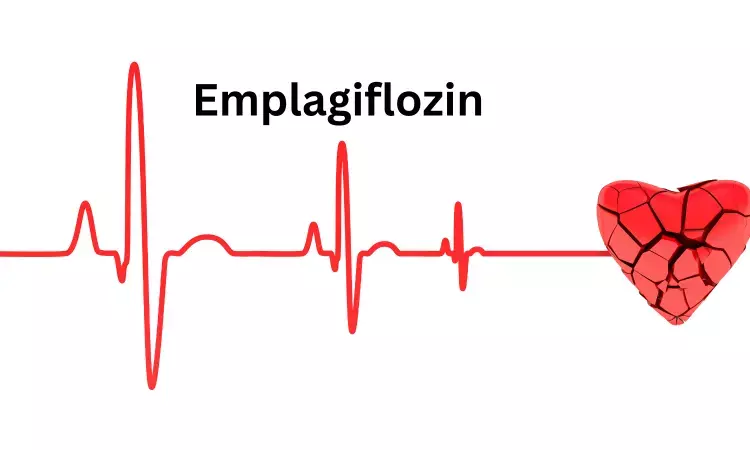- Home
- Medical news & Guidelines
- Anesthesiology
- Cardiology and CTVS
- Critical Care
- Dentistry
- Dermatology
- Diabetes and Endocrinology
- ENT
- Gastroenterology
- Medicine
- Nephrology
- Neurology
- Obstretics-Gynaecology
- Oncology
- Ophthalmology
- Orthopaedics
- Pediatrics-Neonatology
- Psychiatry
- Pulmonology
- Radiology
- Surgery
- Urology
- Laboratory Medicine
- Diet
- Nursing
- Paramedical
- Physiotherapy
- Health news
- Fact Check
- Bone Health Fact Check
- Brain Health Fact Check
- Cancer Related Fact Check
- Child Care Fact Check
- Dental and oral health fact check
- Diabetes and metabolic health fact check
- Diet and Nutrition Fact Check
- Eye and ENT Care Fact Check
- Fitness fact check
- Gut health fact check
- Heart health fact check
- Kidney health fact check
- Medical education fact check
- Men's health fact check
- Respiratory fact check
- Skin and hair care fact check
- Vaccine and Immunization fact check
- Women's health fact check
- AYUSH
- State News
- Andaman and Nicobar Islands
- Andhra Pradesh
- Arunachal Pradesh
- Assam
- Bihar
- Chandigarh
- Chattisgarh
- Dadra and Nagar Haveli
- Daman and Diu
- Delhi
- Goa
- Gujarat
- Haryana
- Himachal Pradesh
- Jammu & Kashmir
- Jharkhand
- Karnataka
- Kerala
- Ladakh
- Lakshadweep
- Madhya Pradesh
- Maharashtra
- Manipur
- Meghalaya
- Mizoram
- Nagaland
- Odisha
- Puducherry
- Punjab
- Rajasthan
- Sikkim
- Tamil Nadu
- Telangana
- Tripura
- Uttar Pradesh
- Uttrakhand
- West Bengal
- Medical Education
- Industry
Left ventricular mass predicts cardiac reverse remodelling in patients treated with empagliflozin

Left ventricular hypertrophy (LVH) is an established predictor of poor cardiovascular outcomes, while increases in left ventricular mass indexed (LVMi) have been independently associated with all-cause mortality and sudden death. Sodium-glucose transport protein 2 inhibitors (SGLT2i) have shown marked cardiovascular and renal benefits in patients with type 2 diabetes (T2D).
The EMPA-HEART CardioLink-6 study investigated that sodium-glucose cotransporter-2 inhibition for 6 months with empagliflozin was associated with a significant reduction in LVMi. In this sub-analysis, the study published in Cardiovascular Diabetology evaluated whether baseline LVMi may influence how empagliflozin affects cardiac reverse remodelling.
A total of 97 patients with type 2 diabetes and coronary artery disease were randomized to empagliflozin (10 mg/d) or matching placebo for 6 months. The study cohort was divided into those whose baseline LVMi was ≤ 60 g/m2 and those who had a baseline LVMi > 60 g/m2. Subgroup comparisons were conducted using a linear regression model adjusted for baseline values (ANCOVA) that included an interaction term between LVMi subgroup and treatment.
The key findings of the study are
• Baseline LVMi was 53.3 g/m2 (49.2–57.2) and 69.7 g/m2 (64.2–76.1) for those with baseline ≤ 60 g/m2 (n = 54) and LVMi > 60 g/m2 (n = 43) respectively.
• The adjusted difference of LVMi regression between those randomized to empagliflozin and placebo were − 0.46 g/m2 (95% CI: −3.44, 2.52, p = 0.76) in the baseline LVMi ≤ 60 g/m2 subgroup and − 7.26 g/m2 (95% CI: −11.40, −3.12, p = 0.0011) in the baseline LVMi > 60 g/m2 subgroup (p-for-interaction = 0.007).
• No significant associations were found between baseline LVMi and 6-month change in LV end systolic volume-indexed (p-for-interaction = 0.086), LV end diastolic volume-indexed (p-for-interaction = 0.34), or LV ejection fraction (p-for-interaction = 0.15).
Pankaj Puar said “Patients with higher LVMi at baseline experienced greater LVM regression with empagliflozin.” In conclusion, patients with larger LVMi at baseline experienced significantly greater cardiac reverse remodelling with empagliflozin than patients with a lower LVMi at baseline.
Reference: Puar, P., Hibino, M., Mazer, C.D. et al. Left ventricular mass predicts cardiac reverse remodelling in patients treated with empagliflozin. Cardiovasc Diabetol 22, 152 (2023). https://doi.org/10.1186/s12933-023-01849-w
MSc. Neuroscience
Niveditha Subramani a MSc. Neuroscience (Faculty of Medicine) graduate from University of Madras, Chennai. Ambitious in Neuro research having worked in motor diseases and neuron apoptosis is interested in more of new upcoming research and their advancement in field of medicine. She has an engrossed skill towards writing and her roles at Medical dialogue include Sr. Content writer. Her news covers new discoveries and updates in field of medicine. She can be reached at editorial@medicaldialogues.in
Dr Kamal Kant Kohli-MBBS, DTCD- a chest specialist with more than 30 years of practice and a flair for writing clinical articles, Dr Kamal Kant Kohli joined Medical Dialogues as a Chief Editor of Medical News. Besides writing articles, as an editor, he proofreads and verifies all the medical content published on Medical Dialogues including those coming from journals, studies,medical conferences,guidelines etc. Email: drkohli@medicaldialogues.in. Contact no. 011-43720751


